What is it like to be a full-time traveler? In this blog post I share my feelings about being a full-time traveler.
31 countries, 500 days, 70,000 kilometers. It’s been a long time since I started my trip around the world – and the journey is still far from over.
Most of my travel blog posts focus on travel tips and specific destinations. They offer lots of information about limited topics, but they don’t show the big picture. How does it feel to be a full-time traveler?
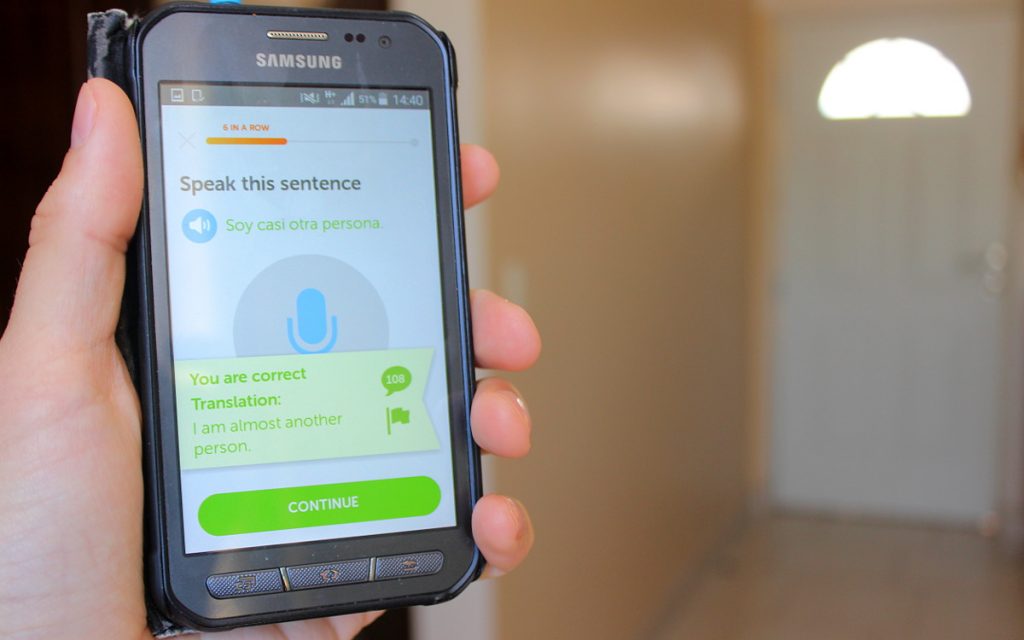
“Soy casi otra persona – I am almost another person.” Duolingo language app knows knows what’s going on!
Turning into a Full-Time Traveler
Last week I stumbled into a selfie I had taken a year ago. I believe I look much younger in the photo. Sure, I might still look the same if I just trimmed my beard and got a haircut, but it wasn’t just that. The time period of the picture already feels like a very distant memory now.
I’m no longer the same person who took that photo.
Being a full-time traveler changes you very slowly, but it sure does change you. You make new choices every day, and those choices start to pile up. Your comfort zone expands, and suddenly things you’ve avoided before come naturally.
On the other hand, you can’t tell which changes are more permanent. You’re in a new life situation, surrounded by new people and living new roles. Even the language you speak seems to change personality.
Sometimes I wonder if almost everything will return to the old “normal” when I eventually get back to Finland and stop being a full-time traveler
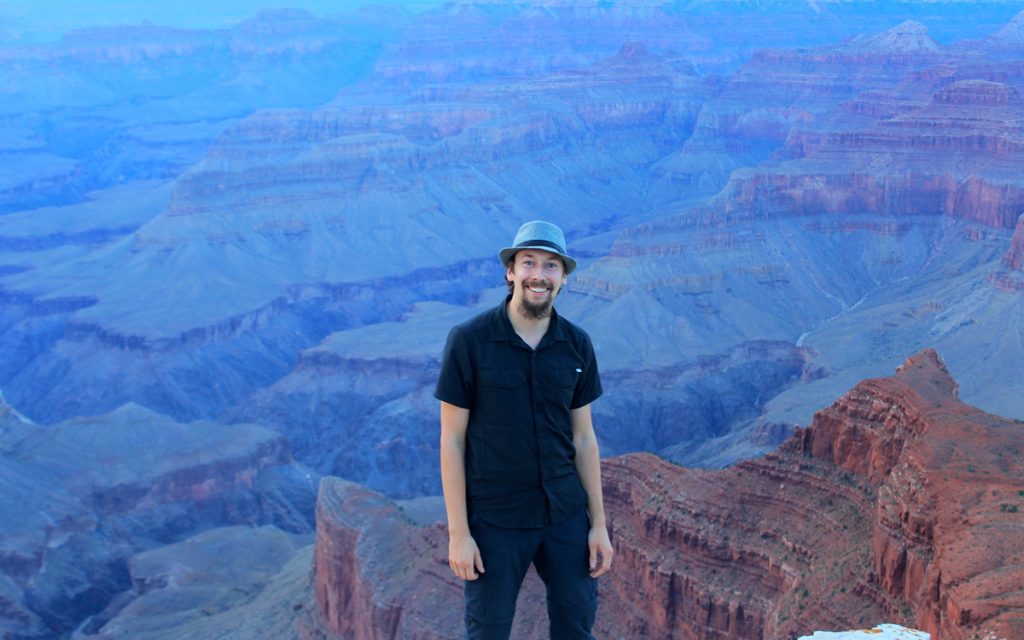
Traveling full-time offers lots of high points, but it’s not joy all the way.
Full-time Travel Doesn’t Change Everything
In many cultures, there’s a shared dream of “leaving everything behind and starting a new life”. People believe their problems would vanish if they could move to some paradise island somewhere far away.
You can prove me wrong, but I’m currently quite skeptical about the idea. If you have an agitated mind, that mind doesn’t go anywhere. Wherever you go, there you are. Being a full-time traveler might change you, but it doesn’t change everything.
After starting my 2-year trip around the world, I’ve found it amusing how I sometimes find myself repeating my old habits. Despite quitting my job, my workload seemed to remain the same for a long time. I’ve often found myself working on new projects, keeping up almost the same level of busyness I had before.
Although everything around me is different, my mind manages put me into familiar situations again and again.
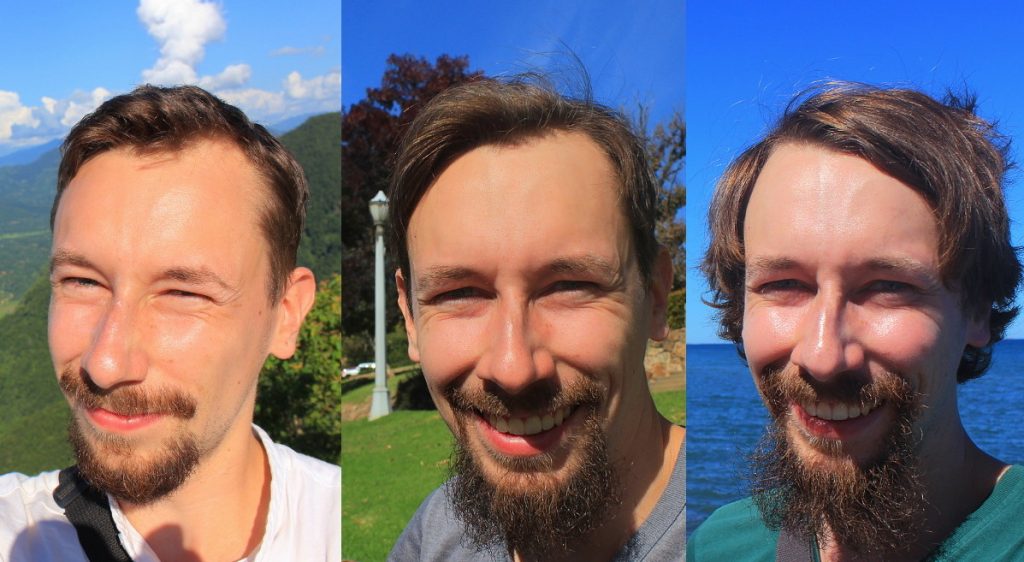
My slow progress towards a vagabond look. (It’s not over yet!)
Full-Time Traveler – An Extreme Version of You?
In a way, being a full-time traveler just gives you more chances to be you. Your surroundings gives you less suggestions and boundaries, so you have to decide everything for yourself. With minimal responsibilities, you may become an extreme version of yourself.
A harmless example: I love reading books. Now that I’m traveling full-time, I’ve been reading more than ever before. I read practically every day. So, during the last 500 days, I’ve read over 50 books. I’m thinking about reducing my reading now, but I simply can’t stop it completely.
Another example: While I was in Laos, I met a Croatian full-time traveler who really liked to drink. He had moved to Vietnam a year before because alcohol in Southeast Asia was so cheap. And yes, he had found lots of chances to drink. He told me he had thought about becoming sober, but he didn’t believe he could do it.
Still, there’s always room for change.
As you travel full-time, you are constantly thrown to new environments with new people. You encounter similar situations hundreds of times – and that’s a perfect platform for trying something new. Once you’ve become aware of your old habits, you can try doing things differently to see what happens.
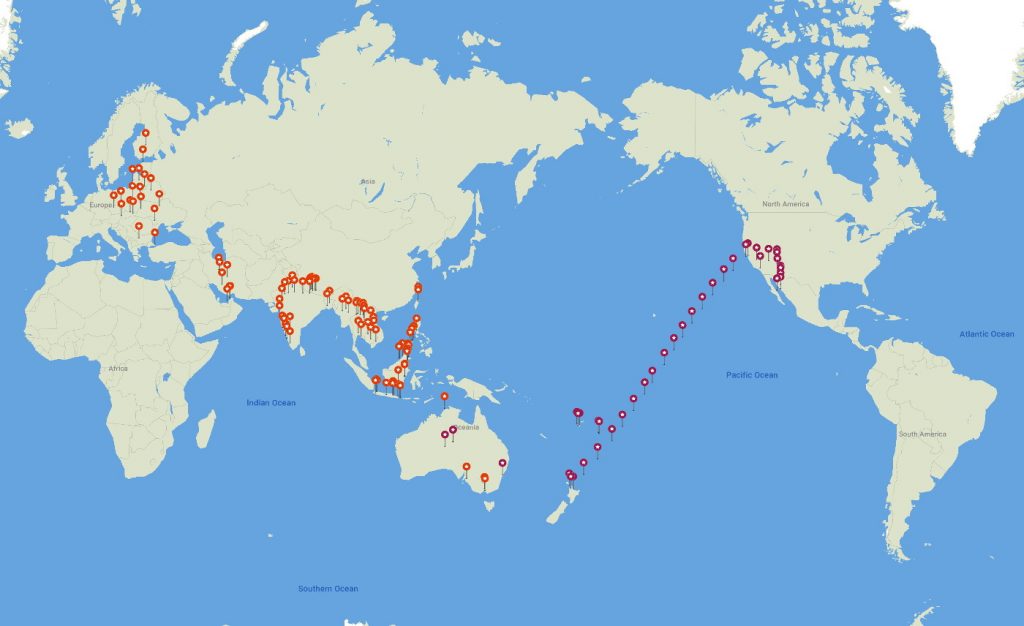
The first 500 days of my trip around the world. Red (days 1-365) and purple (days 366-500) dots mark all the places where I’ve stayed overnight.
Full-Time Travel is Not a Permanent Holiday
“So, what is it like to travel full-time? It’s like being on a permanent vacation, right?”
Wrong! I occasionally travel with people who are on holiday, and I have trouble following their quick pace. They have limited amount of time for traveling, and they don’t want to waste it. As a full-time traveler, I get exhausted if I try to keep up with their energy levels for too long.
Maybe it’s just me, but after seeing dozens of ancient ruins, I’m rarely impressed by yet another historical tourist attraction. In a way, I guess it’s like binge watching your favourite TV show – watching six seasons in a row is not fun anymore. You need to savour the experiences and do something else in between.
You definitely need variety to keep full-time traveling enjoyable. Besides variety, you need meaningful goals. Sometimes traveling will simply “happen on the background” as you focus on other projects. At other times, you want to take a complete break from traveling and stay put for a while until you feel ready to move on.
Like it or not, but traveling full-time isn’t as luxurious and euphoric as some fancy Instagram travel pictures make it look like. After a while, full-time travel becomes just another kind of daily life. Different, but still often mundane in its own way.
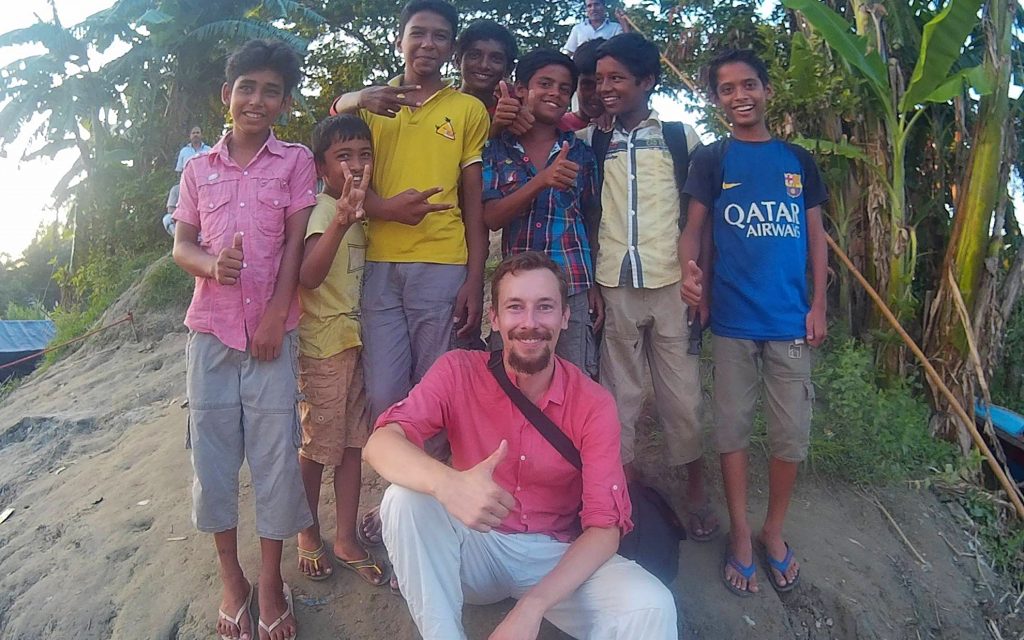
Happiest moments are often shared.
Nomadic Life vs. Settled Life
Full-time travelers get to meet tons of people. Sure, there are times when I may not have a proper conversation in over a week, but there are other periods when I encounter several wonderful people within a few days. The best parts of my trip have been the times when I’ve traveled with other people.
However, you usually just meet the people, hang out for a while and say farewell. In most cases, you won’t ever cross paths again. You might change Facebook contacts, but you can’t invite each other to movie nights or birthday parties. It’s au revoir, safe travels, see you never again!
When you’re living a settled life in one place, it’s easy to take the people around you for granted. Once all that gets taken away, you realize how much social connections mean for your well-being. There’s definitely a reason why so many digital nomads find more permanent home bases after a while.
If I compare my current nomadic lifestyle to my old, settled life, I have to admit that I was probably happier before I left. Back then I was on a relationship and I had a full-time job. Now I’m traveling solo in the wide world of language barriers, and being constantly alone is definitely less fun. The loneliness can hit very hard at times.
Still, I certainly don’t regret leaving. This trip has changed me for the better, and these changes will have their consequences. I might be less happy right now, but I believe this trip has made the rest of my life better. Present happiness is not the only measure that matters.
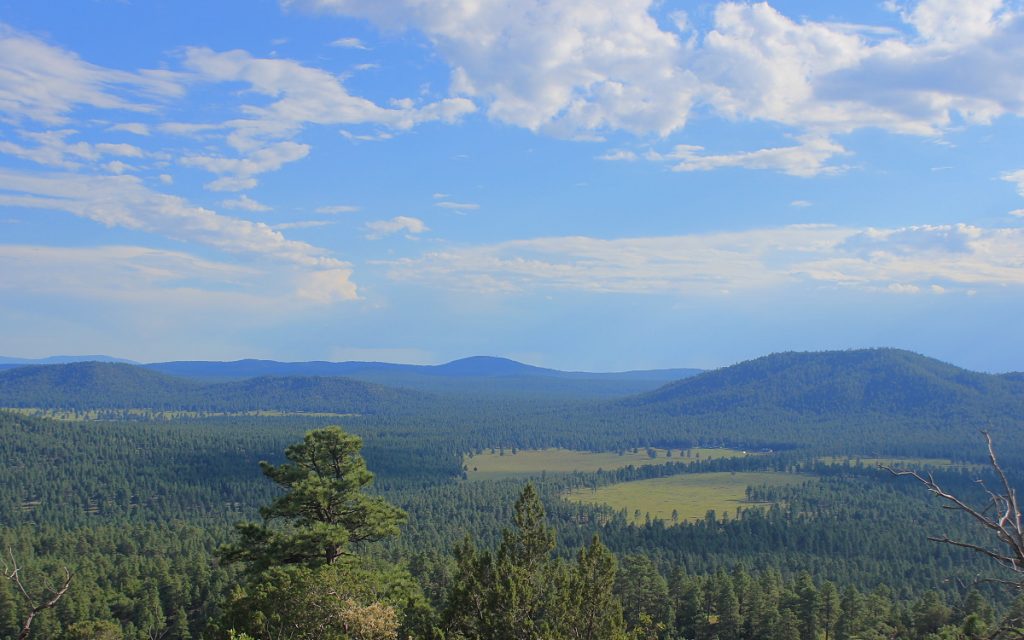
I rarely miss my old life, but I miss having the same people around for longer periods.
How Does It Feel to Travel Full-Time?
Although I just said that I was happier before I went traveling, I have to clarify myself a bit. I was happier on average. I’ve had many joyful periods of traveling, and I’ve experienced several magical moments that have been the highlights of life so far.
And that’s the best and worst thing about being a full-time traveler: you never know what’s going to happen next. There’s less continuity and more unpredictability than there was before. Sometimes you struggle with disappointments, while other times you get incredible surprises that lift your spirits to the clouds.
Living with constant uncertainty can be stressful, but those high points will keep you traveling.
What has been your longest trip? How did you feel about traveling after such a long time? Share your thoughts in the comments below!


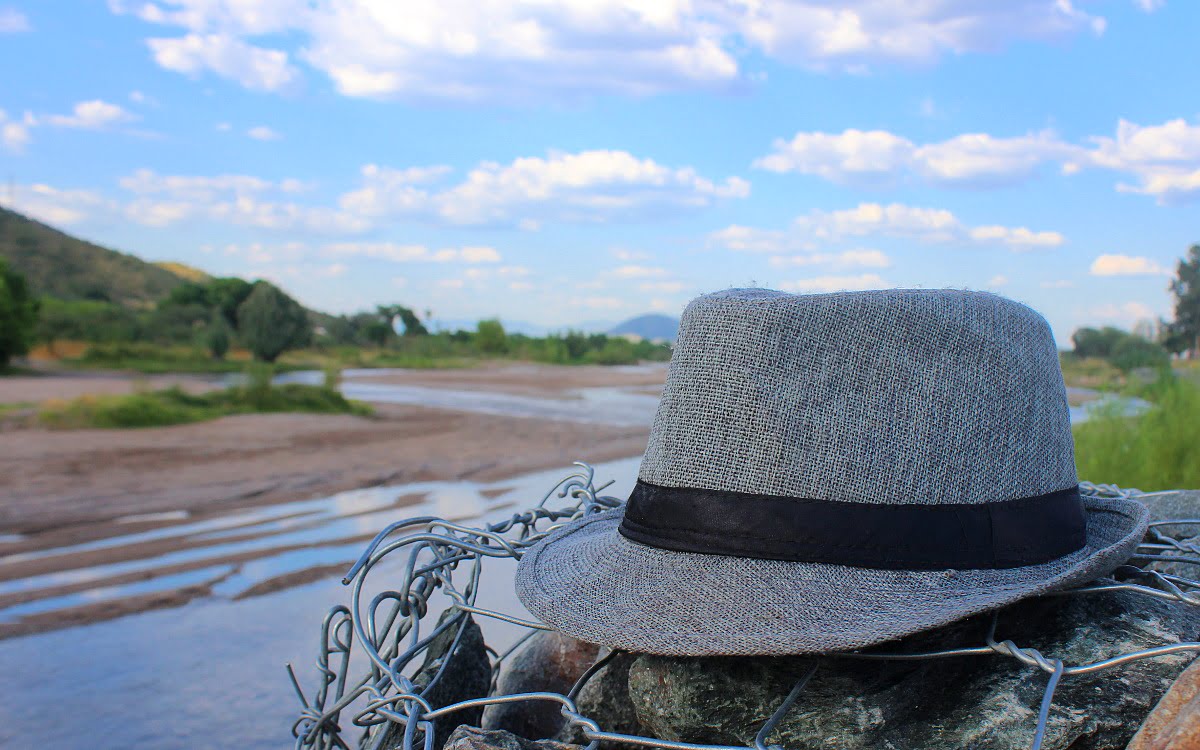
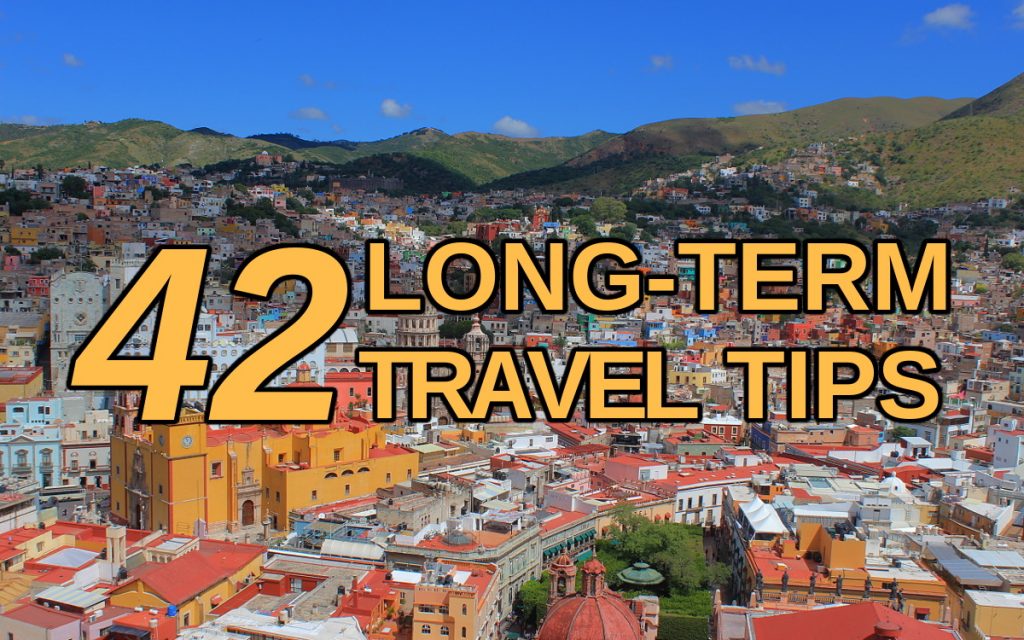
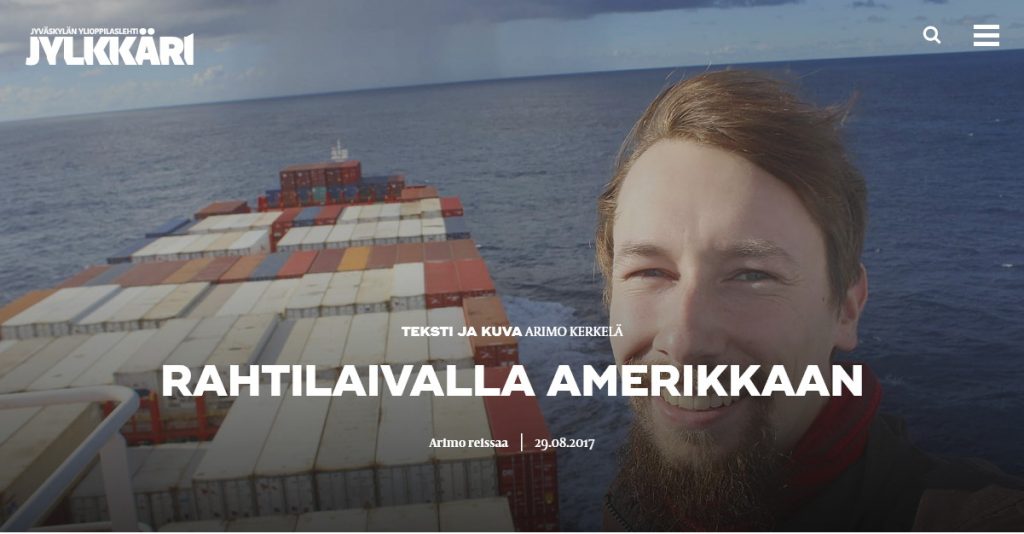
5 comments
Welcome to our little world. 500 days is not a count. Just a measure of experiences.
If time is a sequence of events, then is life a sequence of memories?
Then is a memorable life a sereries of memorable memories?
“The overland traveller goes around the corner to see who there is to meet around the next corner”, max.
Why say you have a two year trip?
I originally went to Nepal to share Christmas with Sherpa friends from my Universty. It then just took four and half years to end up back in New Zealand.
That was forty years ago now.
“Why say you have a two year trip?”
That’s a big question! I could easily fill another blog post with my answer, but I’ll try to keep it shorter now.
In one sense, it’s about serving the people who hear about my trip for the first time. In just a few words, I can give a general idea about my journey for people who read my blog or my magazine articles.
Then there’s the bigger question of why I’ve decided to do a 2-year trip around the world instead of, say, traveling indefinitely without any specific plans.
I have some reasons why I want to finish my trip by next summer. For example, September 2018 is my best chance to return to my studies. I also have three living grandparents who are between 88-90 years old, so I want to get back while I still have the chance to spend more time with them.
I also like to have a “concept” for my trip. The decision to travel around the world is an artificial boundary, but I believe that that boundary keeps me more grounded and helps me get more out of my travels. It’s like working with artists: if you tell them they can do whatever they like, they get stuck and the result is not very good. If you make up some rules for them (eg. “use watercolor and a square-shaped canvas”), they get more creative.
Of course calling it a 2-year trip around the world also limits the way I travel. Then again, I can always change my mind and start calling my trip something else. When I started my journey, I didn’t even call it a 2-year trip around the world 🙂
Where are You NOW ? How long You were in NZ ?